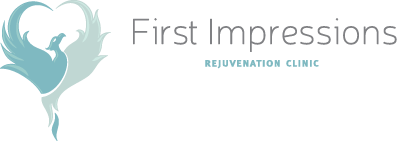These days, it seems like hyaluronic acid is in just about every skincare serum on the market. This is with good reason, as hyaluronic acid is a potent and naturally occurring substance that boosts skin health. It is so powerful that it can hold a thousand times its weight in water to retain moisture and prevent it from evaporating back into the air. Hyaluronic acid has been credited with giving our skin a nice, smooth, full, and supple appearance. It also expedites the healing of wounds, lubricates joints, and reduces the appearance of fine lines and wrinkles.
But wait, there is more.
Is Hyaluronic Acid Good for Hair?
The short answer is yes! Hyaluronic acid is a humectant that draws moisture back into the treatment area. Dry, itchy, flaking scalp? Hyaluronic acid can help trap moisture and relieve these symptoms. If you have dry, thin hair strands, you may be lacking hyaluronic acid. As we age, our bodies produce less of this powerful substance.
The scalp is skin. It is just skin with thousands of terminal hair follicles which grow hair strands. Our hair strands are made up of layers of proteins, including keratin. Each hair strand also contains cuticle scales organized in a row. When your hair is healthy, your strands are shiny and have smooth, flat cuticles. When your hair is damaged, your hair shaft is probably dehydrated, and those cuticle scales are raised, making hair look brittle. Over-washing, intense heat, and environmental factors can contribute to damaged hair.
So, beyond hydration, there are many more benefits of hyaluronic acid for hair. Just as proper moisture-locking plumps our skin, the same can be said for our hair. Hyaluronic acid can plump your healthy hair strands, making them stronger and more resistant to breakage. Hydrated hair means fewer brittle strands.
Frizzy hair got you down? Well, hyaluronic acid can help with that too. We already know it is all about moisture, but it can also help prevent unwanted moisture from sneaking into the hair cuticle. The result? Less frizz and less curl shrinkage.
Hyaluronic acid also supports collagen development within the scalp. Since it binds moisture to the skin, collagen has an environment to thrive, and collagen is essential for hair health. It reduces hair loss and can help thicken your hair.
Finally, hyaluronic acid aids in revitalizing porous hair. If your hair is dry and damaged, it isn’t easy to retain water. Hyaluronic acid works to seal those cracks of porous hair in the hair shaft, allowing the hair to retain moisture.
How to Use Hyaluronic Acid for Hair
You may have seen people on social media platforms apply drops of their favorite skin serum onto their scalp, only to tout the benefits listed above. While hyaluronic acid can be used for all hair types, as long as the hair is wet or damp, you may want to pause before dousing your scalp with that serum. There may be other ingredients that can cause an adverse reaction on your scalp when applied topically. Or the additional ingredients can weigh your hair down. Instead, you will want to use products specifically designed for hair care. Your favorite hair masks and products may already contain hyaluronic acid but under a different name: sodium hyaluronate.
Your hair must be wet before you apply hyaluronic acid. Since it pulls moisture from surrounding areas, you do not want the acid to pull moisture from your scalp! That will result in dry and straw-like hair. For best results, apply your hyaluronic acid hair serum after shampooing. Massage it into your damp scalp. If you are concerned about adverse effects, consider doing a patch test on a small area of your scalp before applying it to the entire head.
Remember, hyaluronic acid will not lock moisture in the hair strand. Instead, it pulls moisture from the environment. Therefore, you cannot rely on it to take the place of hair oils. Make sure you lock in your hair’s moisture with your favorite leave-in conditioning product. Studies also show that hyaluronic acid will not stop hair loss, either. Just in case you were wondering.
Are There Side Effects to Using Hyaluronic Acid for Hair?
The body naturally produces hyaluronic acid regularly, so an allergic or adverse reaction to the compound itself is rare. Irritation most likely occurs when your skin reacts negatively to one of the other ingredients found in your skincare product or hair serum. A single-ingredient serum is undoubtedly the way to go.
Whether your hair is straight or curly, thick or thin, oily or dry, hyaluronic acid is safe to use on all types of hair. This is also true for hair significantly damaged, sensitive, overbleached, or more porous than healthy hair.
Tips for Maintaining Healthy Hair
Now that you are ready to find the perfect hyaluronic acid hair solution for you let’s take a moment to review a few tips to maintain healthy hair to maximize your results.
- Keep tabs on your diet. Ensure you are getting enough proper nutrients to support your hair’s growth. Vitamin A is an essential vitamin for healthy hair. You can find Vitamin A in sweet potatoes, sweet peppers, and spinach, to name a few.
- Consider a hair restoration treatment. Platelet-rich plasma hair restoration treatment can combat baldness and hair loss. This treatment uses platelet-rich plasma from your blood to repair damaged hair follicles, resulting in increased hair growth and thickness. Multiple treatments are necessary for the best outcomes.
- Keep it natural. To protect your hair from harsh chemicals, read the ingredients of your favorite haircare products. Try to choose products that have coconut oil, olive oil, keratin, collagen, jojoba oil, argan oil, aloe, or any other naturally occurring components. And yes, hyaluronic acid is on that natural list!
- Ditch the harsh DIY hair dyes. Home coloring products are cheap and convenient but are laden with harsh and damaging chemicals that can harm your hair. Head to the hair salon for a professional treatment with natural dyes and products when you want to switch up your do.
- Be gentle with your hair. Be mindful of tight ponytails, as the stress you create on the crown of your head can promote breakage. The same goes for how roughly you comb or brush your hair. Losing a few strands here and there is perfectly normal, as our hair naturally sheds. However, if you see more hair loss than usual, you may want to switch up your hair routine and be gentler with your strands.
The Bottom Line
You can use hyaluronic acid on your hair daily as long as your hair is damp upon application and you minimize the number of additional ingredients your serum contains. There are plenty of hair serums on the market that can do the job just as good as your skin serum (and maybe cheaper than skin serums as well), so there is no need to double-dip. Hyaluronic acid provides many benefits for softer, shinier, healthier, stronger hair. But, keep in mind that it only works on existing hair follicles and will not promote new growth in areas affected by hair loss conditions.
The booming popularity of using hyaluronic acid for hair can be credited to social media stars who tried it out and found lasting results. It is one social media trend undoubtedly worth trying! But, if you are unsure about where to start or what products to use, consider booking a consultation with First Impressions Rejuvenation Clinic today. First Impressions has plenty of products available to get you started on your new haircare journey. Our practitioners are available to answer your questions and suggest the perfect products for you.
Your hair is part of you. When you glow, it grows. Remember, you are worth it.
*****************
Sexual dysfunction in women is widespread and can impact women even before they reach menopause, and most commonly, affects women over the age of 40. However, there are many treatments available to enhance your sexual wellness at any age. Learn more when you download our FREE ebook, Bring It Out of the Bedroom: Give Your Love Life the Boost You Both Deserve with Save, Proven Treatments for Sexual Rejuvenation.

